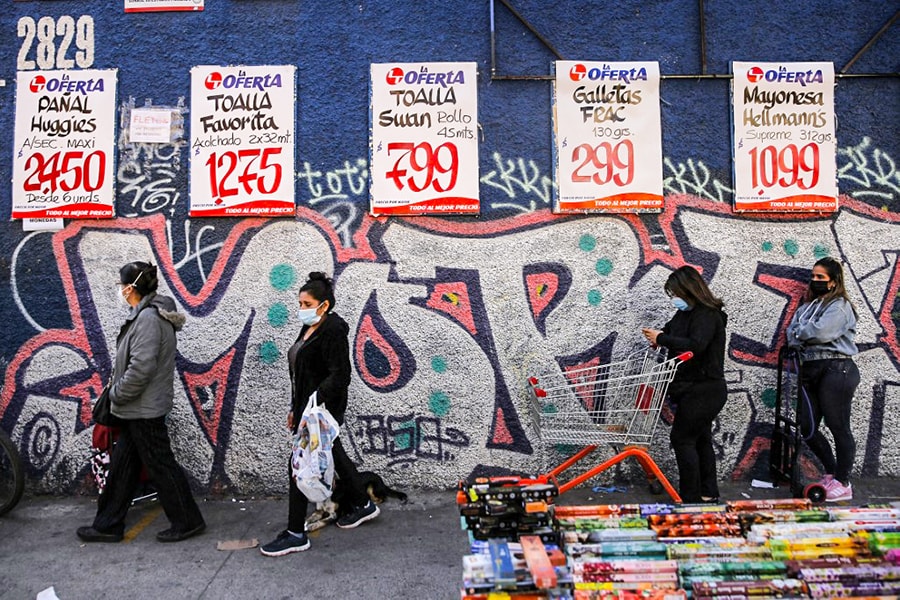
How income inequality can drive Covid infections
A look at lockdowns in Chile finds that wealth played a major role in who stayed home and who risked infection
 People queue outside a store at a commercial area of the Quinta normal commune in Santiago, on June 10, 2021. Chilean authorities imposed Thursday a new total lockdown in the Santiago metropolitan region due to an increase in coronavirus cases although a 57% of the target population is already vaccinated.
Image: Javier Torres / AFP
People queue outside a store at a commercial area of the Quinta normal commune in Santiago, on June 10, 2021. Chilean authorities imposed Thursday a new total lockdown in the Santiago metropolitan region due to an increase in coronavirus cases although a 57% of the target population is already vaccinated.
Image: Javier Torres / AFP
Latin American countries were quick to mandate lockdowns and mobility restrictions when Covid-19 hit in March 2020. While it was clear that these public health measures would put the brakes on the region’s growing economy, it was not evident how people would react to them, particularly when faced with the choice between sacrificing income and avoiding infection.
This dynamic was especially pronounced in Santiago, Chile, one of the region’s most prosperous cities, but also one with deep socioeconomic inequality that had fueled violent antigovernment protests in late 2019.
Against this backdrop, Gabriel Weintraub, a professor of operations, information and technology at Stanford Graduate School of Business, and a team of researchers in Chile ran a study in the early months of the pandemic to observe how lockdowns and shelter-in-place orders would affect the spread of the virus in Santiago. Using cellphone data to track residents’ movements, they found that socioeconomic disparities had a major impact on how people reacted to public health orders, which in turn could predict Covid outbreaks.
“How people responded differently to lockdowns was not that surprising,” Weintraub says. What was surprising was the magnitude of the gap between low-income and wealthy communities: “We saw a striking difference in how a wealthy municipality with no mandatory restrictions reduced its mobility a lot more than a low-income municipality with lockdowns in place.” Wealthier areas in Santiago reduced their mobility between 50% to 90% while low-income areas only showed reductions between 20% to 50%.
Those differences in mobility proved to be important signs of increasing case counts. The study found that a 10% increase in mobility in a municipality correlated with a 5% increase in the rate of infections.
This piece originally appeared in Stanford Business Insights from Stanford Graduate School of Business. To receive business ideas and insights from Stanford GSB click here: (To sign up: https://www.gsb.stanford.edu/insights/about/emails)







